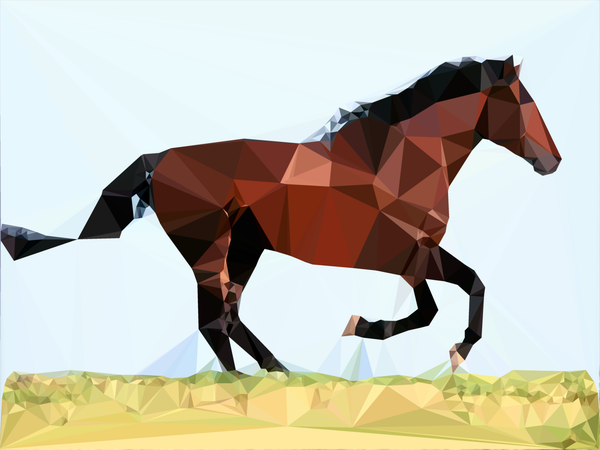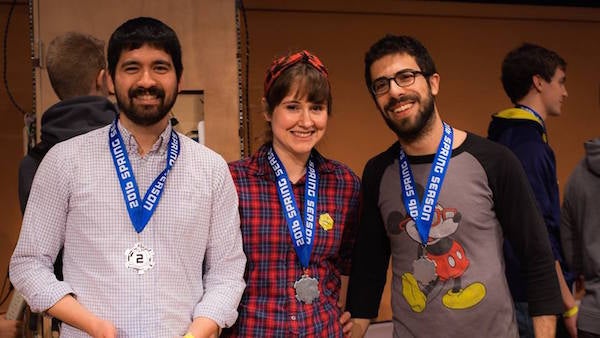This article was published in Scientific American’s former blog network and reflects the views of the author, not necessarily those of Scientific American
Ph.D. student Olivia Walch loves numbers. As a student studying applied and interdisciplinary mathematics at the University of Michigan, she has a knack for seamlessly applying her studies to the real world: Olivia uses mathematics to build apps, to process images, and even to make comics. A mathematician at heart, Olivia is interested in using numbers to describe the world, improve our bodies and lives…and also to have some fun.
We reached out to Olivia to learn more about the world of mathematics, her passion for numbers, and why mathematics is one of the most useful tools in the world. Check out our conversation with Olivia below, which has been edited for clarity.
TERRI BURNS: Tell me about your background, what you're studying in school, and some of your interests.
On supporting science journalism
If you're enjoying this article, consider supporting our award-winning journalism by subscribing. By purchasing a subscription you are helping to ensure the future of impactful stories about the discoveries and ideas shaping our world today.
Olivia Walch: I double-majored as an undergraduate in mathematics and biophysics, and now I'm working on my Ph.D. at the University of Michigan. My thesis is on the mathematics of subconscious vision—basically, using math to explain how light affects our bodies without us realizing it. This includes modeling how light affects our circadian clock, which controls our internal timekeeping and can cause jet lag when we travel. As part of my research, I wrote an app called Entrain that recommends schedules of light and dark to help people get over jet lag faster.
I'm also interested in the mathematics of image processing and applying it to art. With my friend Matt Jacobs, I made another app called Sketch Anything that uses math to generate step-by-step drawing guides. My number one hobby outside of math is drawing cartoons, which is often a nice way to end a math-filled day. I won the Washington Post's America's Next Great Cartoonist Competition in 2010, and have kept up a webcomic since then while I work on my degree.

Math meets art: this image the result of using Harris corner detection to find interesting points and Delaunay triangulation to connect them with triangles. Credit: Olivia Walch
How did you get your start in mathematics, and what about it has made you want to pursue it for so long?
I never saw myself as doing math for a career until I was an undergraduate and was given the opportunity to try math research. It was amazing! I'd thought beforehand that math was, on the whole, pretty much entirely figured out. It took trying research for myself to realize how little we know, and how fun the process of cobbling together an understanding of something new can be.
What's your favorite part about the field of mathematics?
It's one big playground! You learn a core set of tools, and then you're given the freedom to explore and experiment with them as you try to build a proof. Sometimes I hear people say they don't like math because "it's all about following rules to get the right answer," but that's so reductive! That's like saying you don't like playing with Legos because the blocks can only fit together in certain ways.

Walch poses with her hackathon teammates. Credit: Olivia Walch
What's your least favorite part about mathematics?
Your ego can get very tied to the math you do, which just gets in the way of learning and having fun with it. When you won’t take a risk and ask a question because you're too afraid that something should be obvious, a lot of doors close. I think this is a problem at almost all levels, which contributes to people feeling shut out by it early in their exposure to math.
Math has a reputation for being very difficult. Is this a sound reputation, and how do you think mathematics can become a more accessible and desirable field of study?
I think that reputation is related to what I mentioned before—the fear that if you make a mistake, it means you're just not a math person. Encouraging more exploration and tinkering at early math levels could help with this, as could more visible displays of teachers and instructors struggling with math. It's so valuable to see people who are doing math for their career messing up and needing to backtrack! No more of this "antisocial genius scribbles solution on clear pane of glass after two seconds of thought" nonsense.
You also have experience coding and making artwork. How do those subjects relate to mathematics, and do you have a favorite?
Yes, my days are a healthy mixture of all three things! At a certain point, theoretical computer science and mathematics are indistinguishable, but it's also nice to do lower-level coding (like app making) to feel like you've produced something concrete, especially on days when you've thought really hard about math and managed to come up with nothing hot.
Art-wise, I see math and programming as new kinds of paintbrushes. If art is about transforming reality to make some kind of statement, then embracing coding as a tool lets you achieve all kinds of new and exciting transformations. It's so exciting to see all the art that's emerging as technology evolves, sometimes in galleries and sometimes just on people's' personal websites.
Why is math important? How does that make your work and studies important?
Math takes over when language exhausts itself. In biology, for instance, even simple systems can require paragraphs and paragraphs of text to describe how all the components combine and interact, and usually these descriptions are imprecise in some way. With math, you can express all that complexity as a system of equations, and you're able to quantify the error between your description and reality. As we get better at teaching math, we're going to use it more and more in everyday conversation, and it's going to help us communicate with each other so much better.
There have been many times where I've been in classes with discussion sections-- humanities or art classes, for instance—and I've felt like the discussion is going in circles because the people contributing are all saying things that are true, but "ill-posed." Like, what they're saying sounds convincing, but something's not quite completely defined in their statement because language has so many limitations, and this lack of specificity keeps the conversation from advancing. So I sit there thinking "if only* this had more math," like a big old stereotypical math nerd, but I really think it would help! Really.